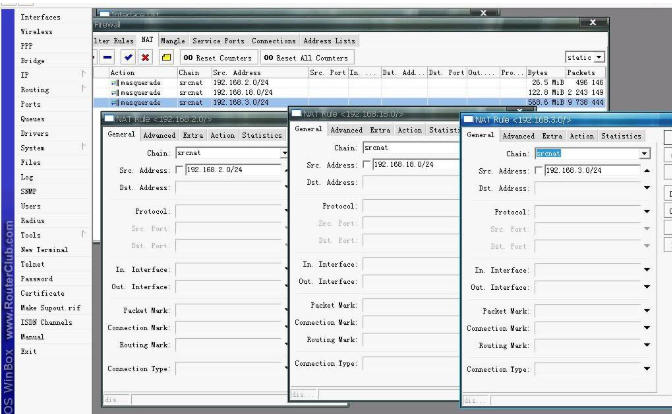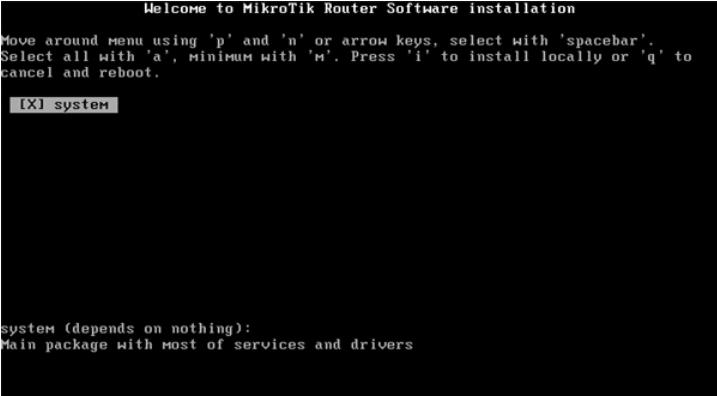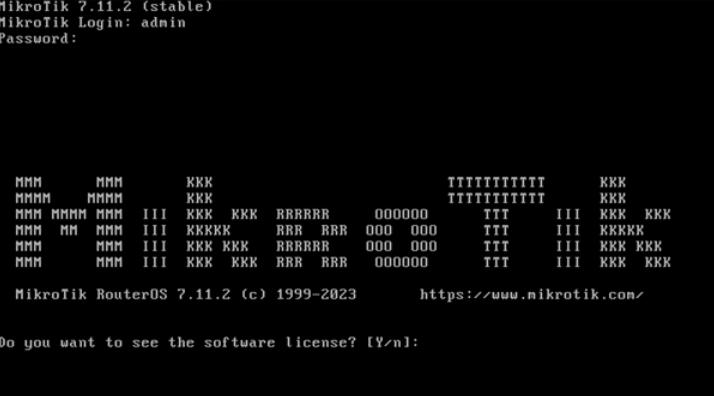- Green versionView
- Green versionView
- Green versionView
- Green versionView
Routers soft routing is a professional routing operating system developed by the Latvian MikroTik company. It is deeply optimized based on the Linux kernel and supports x86/ARM architecture hardware and virtual machine environments. It can transform ordinary PCs or special equipment (such as RouterBOARD) into high-performance routers. Its core advantages lie in high cost performance, comprehensive functions and deep customization. It is suitable for scenarios such as homes, enterprises, small ISPs and industrial control.

Software features
Multi-WAN intelligent load balancing
Supports 2-8 lines of mixed access (ADSL/fiber/4G/5G), and uses PCC (packet-based load balancing) technology to allocate traffic according to source address, destination address, port and bandwidth ratio, increasing line utilization to more than 95%.
Built-in telecom/network routing table, automatically identifies operator traffic and solves the problem of north-south interconnection lag; supports real-time link detection, automatically switches backup lines in case of failure, and the switching time is < 100ms.
Enterprise-level security protection
Firewall: Supports stateful inspection, IP/MAC binding, port mapping (NAT), content filtering (URL/keyword) and application layer protocol identification (such as P2P, streaming media), and can accurately intercept DDoS attacks (SYN Flood, UDP Flood, etc.) and ARP spoofing.
VPN: Integrates WireGuard, IPsec, PPTP and other protocols, supports site-to-site and remote access, provides military-grade encryption (AES-256), and is suitable for enterprise branch office interconnection.
Refined traffic management
Bandwidth allocation is implemented based on the HTB (Hierarchical Token Bucket) algorithm, and upload/download speed limits (accuracy up to 1kbps) can be set for a single IP or device to ensure bandwidth for key services (such as video conferencing).
Supports QoS priority queue, automatically identifies voice/video traffic and forwards it first, reducing delays and freezes.
Flexible networking and expansion
Bridging and VLAN: Supports multi-network card bridging (transparent switching) and 802.1Q VLAN, which can divide multiple virtual LANs to achieve device isolation and security management.
Script automation: Network monitoring, fault self-healing and dynamic policy adjustment (such as automatically blocking malicious IPs) are implemented through built-in Lua scripts to reduce operation and maintenance costs.
Multi-platform management and cloud services
Local management: Supports WinBox (Windows graphics tool), SSH/Telnet and WebFig (web interface), the configuration interface is intuitive and the functions are modular.
Remote management: Achieve cross-network device monitoring and configuration synchronization through MikroTik Cloud, support automatic firmware updates and centralized log analysis.

Core functions
Basic network functions
Routing protocols: Supports static routing, RIP v1/v2, OSPFv2, BGPv4 and other dynamic routing protocols, and can build complex enterprise network topologies.
DHCP service: Provides DHCP server, relay and client functions, and supports address lease management and static IP binding.
NAT and port mapping: Supports source/destination NAT, port forwarding and Hairpin NAT (intranet penetration) to facilitate the establishment of Web/FTP servers.
Wireless and Hotspot Certification
Wi-Fi support: Compatible with 802.11a/b/g/n/ac protocol, supports AP mode, WDS (wireless bridging) and Mesh networking, suitable for covering large places.
HotSpot authentication: Force users to pass web page authentication (supports Radius server), can be billed by time/traffic, customize authentication page and advertising.
Advanced network services
VPN centralized management: Supports WireGuard server/client configuration, which can quickly establish a secure encrypted channel, and the transmission speed is 30% higher than IPsec.
Proxy and cache: Built-in HTTP/FTP proxy server, supports cache acceleration (reduces repeated downloads) and transparent proxy, saving bandwidth costs.
Monitoring and logging
Real-time monitoring: View interface traffic, CPU/memory usage and number of connections through the Graphs function, and support custom monitoring charts.
Log system: records system, network and security events, supports local storage, remote log servers (such as ROSLOG) and email alarms.

Frequently asked questions and solutions
Multi-WAN load balancing failure
Cause: Line gateway conflict, firewall rule blocking, or PCC configuration error.
Solution:
Make sure that each WAN port obtains different network segment IPs, and modify the default route priority (the smaller the value, the higher the priority).
Check whether the firewall allows UDP 67/68 (DHCP) and TCP 1688 (KMS) ports.
Reconfigure the PCC rules to ensure that the classifier is set to "both address and port" and that connections and routes are marked correctly.
ROS soft routing update log:
1. Fixed BUG, the new version has a better experience
2. Some pages have been changed
Huajun editor recommends:
After many updates and optimizations, ROS soft routing has become more user-friendly and simpler to operate. The editor of Huajun Software Park personally tested it and recommends it to everyone. Interested friends can also download it..NET,Cloud Machine Manager,Hard drive serial number reader,Quickly hide taskbar icon tool,Android Emulator Master.



































Your comment needs to be reviewed before it can be displayed